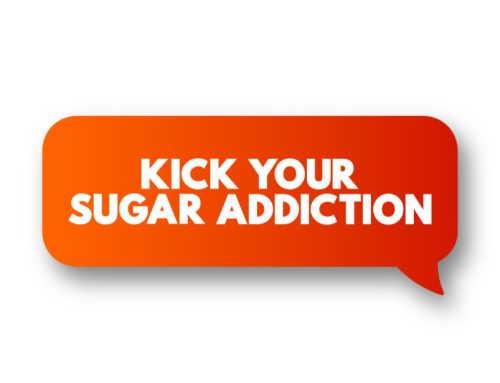 Regularly cleaning your teeth helps you keep and maintain a healthy, white smile! But that is not all it’s good for. There are nearly endless reasons why you should conduct regular dental cleaning. Every time you visit your local dentist for a teeth cleaning procedure, you significantly minimize your risk of gum disease, tooth decay as well as other dental problems.
Regularly cleaning your teeth helps you keep and maintain a healthy, white smile! But that is not all it’s good for. There are nearly endless reasons why you should conduct regular dental cleaning. Every time you visit your local dentist for a teeth cleaning procedure, you significantly minimize your risk of gum disease, tooth decay as well as other dental problems.
Simply put, routine dental cleaning is imperative. Even if you are highly conscientious about your teeth cleaning routine, regular dental exams, as well as cleanings, can help identify any hidden issues about your oral health. But how often should you carry out routine dental cleaning? As professionals in dental health, we are going to provide you with the necessary information regarding the importance of regular dental cleaning as well as how often you should visit your local dentist.
So, why is routine dental cleaning important?
As already mentioned, there are numerous health-related reasons why you should conduct routine dental exams as well as cleaning. Routinely cleaning your teeth is essential to your overall dental health, and general health as well. In brief, below are a few of the compelling reasons why you should regularly clean your teeth.
- By regularly cleaning your teeth, you are essentially taking an important step toward enhancing the health of your teeth and gums. Gum disease is usually incredibly tough to detect, but through routine teeth cleaning, you can not only prevent gum disease but can also identify it earlier enough before it becomes a serious condition.
- Routine tooth cleaning has also been proven to help keep your teeth intact as it eliminates the build-up of both tartar and plaque which often collects on your teeth’s outer layer with time. And in case you didn’t know, it’s this build-up that can result in eventual tooth decay or tooth loss.
- Dental cleaning is also an ideal way to ensure your teeth remain free of stains, so you can always be proud of your pearly whites and confident smile!
- As earlier explained, your overall dental health has a direct impact on your general health. If you neglect your oral health, in some instances, this can easily lead to the development of serious health conditions, including heart disease as well as diabetes.
So, what should you expect from your routine dental cleaning appointment?
If you have never gone for a dental checkup, you might be wondering what to expect during your first ever dental cleaning appointment. To put it simply, it’s an examination of your teeth as well as your overall health. Here is how the whole process works:
A basic check-up:
During your routine teeth cleaning appointment, your dentist will have the time to closely examine your mouth and dental health for any visible possible problems. Your dentist will use miniature mirror-like equipment to examine your teeth and gum health.
What’s more, your dentist will look for visible gingivitis signs, which may include gum inflammation, bleeding, and tenderness. He/she will equally try to identify other potential issues such as faulty fillings as well as mouth lesions.
As you can see, any dental check-up session allows your dentist to evaluate your overall dental health and identify potential problems before they become serious dental problems.
Tartar and plaque removal:
It is imperative to note that this is usually the part of the dental cleaning session that consumes the most time. Your doctor will use a device known as a scraper to remove any plaque-up from the outside layer of your teeth. Furthermore, your dentist will access those hard-to-reach locations that you might miss, even with regular flossing.
Tartar refers to a substance that develops if plaque is left to stay in your teeth for an extended period. And once your doctor finishes removing plaque, he will immediately look for tartar build-up signs. Also referred to as calculus, tartar develops when plaque mixes with saliva, which ultimately hardens, forming tartar.
Tartar is generally brownish or yellowish, and can easily lead to the development of major dental issues such as receding gum lines and tooth loss.
Teeth flossing and polishing:
Once your dentist is through with tartar and plaque removal, he will thereafter polish your teeth. To conduct this procedure, the doctor applies gritty toothpaste and uses a rotating polishing device. And the slightly abrasive toothpaste equally helps eliminate any lingering tartar and plaque. After the polishing session, your pearly whites will get thorough flossing. This helps eliminate any debris the toothpaste might have failed to remove during the polishing phase.
During this procedure, your doctor will access the so-called hard-to-reach spots that might miss. And if in any case, you experience gum bleeding in some locations, the dentist will provide you with some practical and effective tips on how to enhance your dental health to curb bleeding.
Dental care tips in-between examinations:
There is usually lots of time that passes between your oral cleaning sessions, and a lot can potentially occur during this period. And this is why you don’t want to neglect your oral care during this particular time to ensure your teeth remain in tip-top condition. Some proven tips include:
- Floss more regularly, possibly at least once daily.
- Make sure you thoroughly brush your teeth two times daily (day and night)
- Use a soft-bristled toothbrush and fluoride toothpaste.
- Use a top-notch mouthwash that prevents the build-up of both bacteria and plaque.
If you experience anything odd about your dental health such as sudden gum pain or toothache, don’t hesitate to contact your dentist for assistance as soon as possible.
If you are looking for a dentist, HPS Advanced Dental Care would love to see you. Dr. Heather is gladly accepting new patients.
We are located at 4741 24 Mile Rd. Shelby Township, MI 48316, and we can be reached at (248) 652-0024. We look forward to meeting you!





